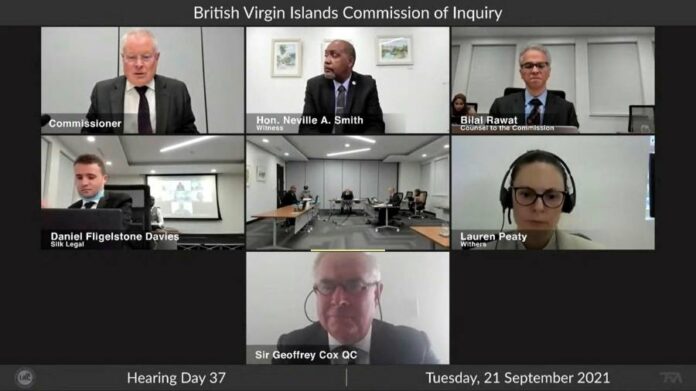“I genuinely believe that the UK is not remotely a corrupt country,” Boris Johnson proclaimed this week. International surveys suggest British public life is, indeed, relatively clean. But impressions matter. That the prime minister felt compelled to make such a declaration at a COP26 briefing highlights the damage done by his shameful mishandling of the Owen Paterson case, which has now cast a fresh and unflattering spotlight on MPs’ second jobs. It is clear that rules created in an era when MP posts were part-time roles filled by a professional or privately wealthy class must be rewritten.
Many parliamentary scandals of recent decades — cash for questions, the expenses scandal — have concerned behaviour that was within the rules set by MPs. Each has forced changes, and more are now needed. The days of MPs taking roles as political consultants, strategists or advisers to businesses or trade bodies must be over. The idea that a company can buy the advice, support or access provided by an MP is patently undemocratic. Some older MPs, especially those who have left ministerial office, might then choose to stand down earlier, denying the Commons their heft, and the independence that comes when ambition is past. This is a price that must be paid.
More complex is the issue of MPs having outside jobs at all. Better paid MPs who focus solely on their job is vastly preferable for ensuring public trust and avoiding any hint of conflict of interest. True, the valid arguments for second jobs, heard not just in the UK, are that they help lawmakers retain links with a profession — and return after leaving office — and with society at large. Outside interests for politicians are also relatively common, with strict limits, in European democracies including France, Germany and Spain.
The US Congress is different. US federal rules cap outside earned income at a low level and ban lobbying and professional services roles involving a fiduciary relationship, so very few lawmakers do anything substantial. Restraints on lobbying and consultancy are also often stronger in European countries than the UK.
Since Johnson’s efforts to weaken parliamentary standards and shield a colleague in blatant breach of the rules, it is right to question whether MPs should have second jobs. Sir Geoffrey Cox, the Conservative former attorney-general, was revealed to have earned nearly £1m from legal work last year, including advising the British Virgin Islands. This is not in itself against the rules. But voters are entitled to wonder how someone spending so much time on other work can be doing the job of representing them.
MPs who set their own rules are unlikely to bar second jobs. But the Cox case shows that, even if they are unwilling to go that far, tighter rules are needed. As well as barring consultancy work, there should be strict limits on hours spent on other outside roles. Hours should be declared in the Commons register, alongside income secured. This is not totally enforceable but would raise visibility of MPs who were pushing the boundaries. There may be a case too for reviewing MPs’ pay. While many voters consider MPs well paid, their £82,000 annual salaries are lower than some counterparts; German lawmakers earn about €10,000 a month.
It is fair to argue that second jobs are unsustainable in the modern political age. If MPs wish to retain them, they need to show they are controlled and contained. That means tough new rules and a leadership that backs, rather than undermines, the commitment to the highest parliamentary standards.
Credit: Source link










